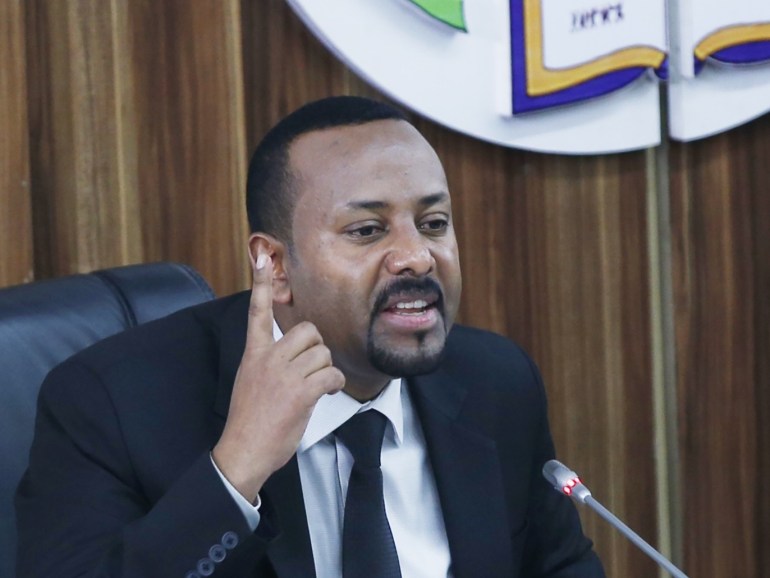Ethiopia has renewed its rejection of the proposal to entrust the mediation in the Renaissance Dam crisis to an international quartet, but stressed that it does not aim to harm Egypt and Sudan.
On the other hand, Cairo expressed its regret for what it described as the procrastination in the negotiations.
Ethiopian Prime Minister Abiy Ahmed - in response to the questions of the representatives in Parliament today, Tuesday - said that solutions can be found for all the discrepancies between the upstream and downstream countries through understanding and dialogue.
He added that the Renaissance Dam - which Ethiopia is building on the Blue Nile - will serve the interests of the three countries, and that filling its reservoir will not affect Egypt and Sudan because the matter will depend on rain water.
According to Al-Jazeera correspondent in Addis Ababa, Hassan Razzaq, Abiy Ahmed told the parliament that postponing the second phase of filling the reservoir - which Ethiopia intends to implement in July - will cost the country about one billion dollars.
The Ethiopian Prime Minister said, "The Sudanese and Egyptian people must understand that we will not affect the neighbors of the Nile. We want to benefit from the rainwater that falls heavily in the fall and seize 5% of it ... The mobilization cannot be linked to the signing of the agreement. We are ready to sign tomorrow morning if its matters are." Complete, but there are complicated technical and political issues. "
Abi Ahmed refused to link the filling of the dam reservoir to the conclusion of the agreement between the three countries (Anatolia - Archive)
For his part, the Ethiopian Foreign Ministry spokesman, Dina Mufti, described the proposal of the Quartet of international mediation on the Renaissance Dam as sterile and futile.
The Mufti reiterated his country's commitment to the talks led by the African Union, noting that the negotiations were temporarily suspended due to the transfer of the rotating presidency of the Union.
He added that it is inappropriate to call for the Quartet's proposal before the final results of the African Union-led negotiations are known.
The Egyptian position
On the other hand, the Egyptian Minister of Irrigation and Water Resources, Mohamed Abdel-Aty, said that there is stalling and wasting time in the Renaissance Dam negotiations, expressing his regret for that.
In statements during his meeting with a number of editors-in-chief of the Egyptian newspapers, the minister believed that Egypt had shown great flexibility in the issue of the Renaissance Dam and during the negotiations on filling and operating the dam.
He added that his country has never stood against development in Africa, pointing out that there are 11 dams in the Nile Basin countries agreed upon by Egypt and some of them were funded by the Egyptian side.
In the same context, Egyptian Prime Minister Mostafa Madbouly said - during talks with his Jordanian counterpart, Bishr Al-Khasawneh - that Egypt seeks to resolve the issue through diplomatic means.
Sudan calls - and Egypt supports it - to resume negotiations with Ethiopia under the auspices of an international quadripartite led by the African Union, which includes the United Nations, the European Union and the United States, but Addis Ababa announced its rejection of this proposal.
Since 2011, Egypt, Sudan and Ethiopia have been negotiating to reach an agreement to fill and operate the Renaissance Dam that Addis Ababa is building on the Blue Nile, and Cairo and Khartoum fear its effects on them, and the three countries failed to reach an agreement.
Although Egypt and Sudan urged Ethiopia to postpone its plans to fill the dam reservoir until a comprehensive agreement was reached, Addis Ababa announced on July 21, 2020 that it had completed the first phase of filling the reservoir, which allows testing the first two pumps in the dam, and confirmed its intention to implement the phase Second to fill in next July.

